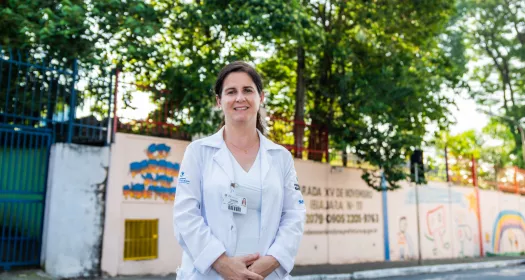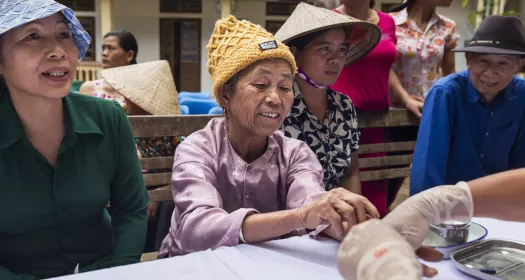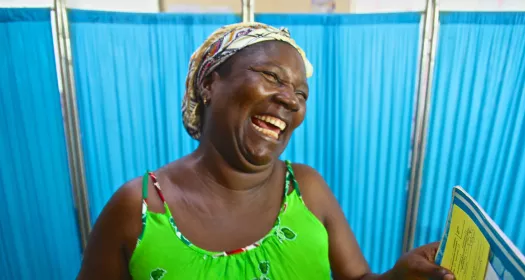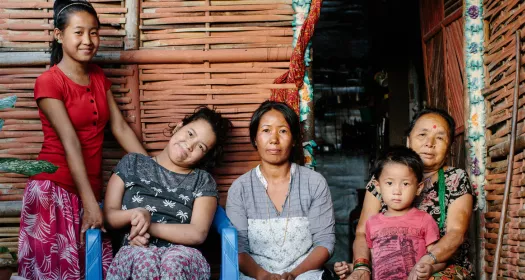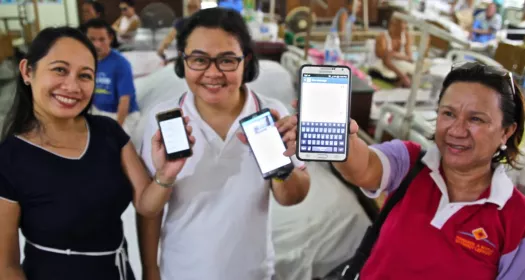Access to healthcare for people in low- and middle-income countries is challenging. Patients often have to travel considerable distances to receive care, and experience high mortality and morbidity rates for diseases that can be easily treated.
The Ghana telemedicine program started as a pilot project in the Amansie West District of the Ashanti Region in 2011, covering 30 communities of about 35,000 people. The Novartis Foundation worked with local and international partners on the pilot model.
Telemedicine uses information and communications technology (ICT) to connect community health workers to medical specialists via 24-hour teleconsultation centers. Doctors, nurses and midwives in the teleconsultation centers coach community health workers and advise on the treatment of their patients, helping them manage emergency cases that are beyond their capacity and avoiding unnecessary referrals.
This not only strengthens healthcare capacity and empowers community health workers; it also improves quality of care, avoiding unnecessary referrals and reducing transport times and costs for patients.
Based on the pilot’s success, the Ghana Health Service selected it for implementation across the nation in 2016. The Novartis Foundation worked with the Ghana Health Service and Ministry of Health on a roadmap for scale-up, and set up and staffed six teleconsultation centers across the country to support the objective of reaching national coverage.
During the COVID-19 pandemic, telemedicine has proven to be a life-saving solution, and its integration into health systems is accelerating rapidly. We captured the lessons from the Ghana telemedicine program in a toolkit that aims to share best practices for setting up a provider-to-provider solution as was implemented in Ghana.
You can find the telemedicine toolkit here.
Partners
Our partners during different stages of the initiative included Millennium Promise Alliance, Earth Institute, Columbia University, the Ghana Ministry of Health, Ghana Health Services, the Ghana Ministry of Communication, National Health Insurance Agency, and Ambulance Service, Ghana Mental Health Authority, St. Martin’s Hospital, MedGate, Ericsson and Airtel.
